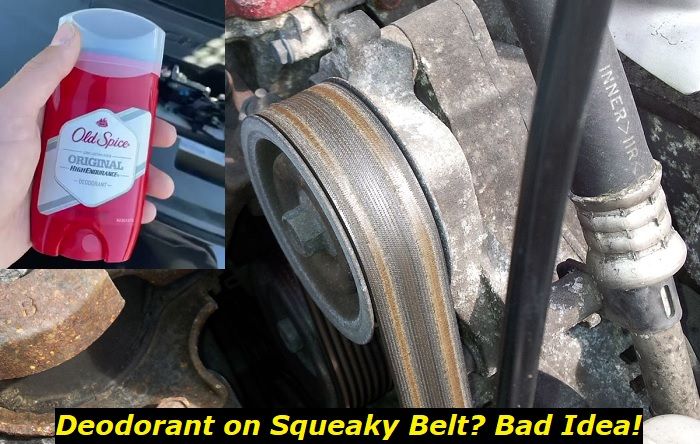If you are a fan of purely Japanese cars, you know that Scion tC was manufactured between 2005 and 2016 in a Toyota Tsutsumi plant in Japan. This is a compact car that offers a pretty good design and reliable technologies. Unfortunately, you can't buy it new now and the first-years models of the vehicle are now quite old and start showing their high-mileage problems.
Today, we'll be talking about the opportunity to sell the catalytic converter from your Scion tC. Can you get lots of money for this scrap part? We'll investigate the market and will also tell you more about the converter that was installed in these vehicles. Finally, we'll give you some recommendations on how to get true and up-to-date data if you want to know more about the cat converter scrap prices.
.jpg)
Here's what we will be talking about:
- What kinds of converters were used in the Scion tC?
- How long will an average tC catalytic converter live?
- How much should a scrap cat from your Scion tC cost?
- What are the potential buyers for your Scion catalytic converter?
- Should you bother about the replacement cat for the Scion tC?
Let's get started!
Some facts you should know about Scion tC cat converters
Scion sold a lot of tC models in the US between 2005 and 2008 - an average of 70,000 vehicles a year. But after that, the popularity of the model went down. Even the presentation of the second-generation Scion tC didn't save the situation. So, first-gen cars are obviously more common on US roads.
It doesn't mean that the Scion tC is a bad vehicle to own. It just means that it lost in a competitive fight in the class. Toyota installed its legendary 2.4-liter 2AZ-FE in the first-gen Scion tC and not much less legendary 2AR-FE 2.5L 4-cylinder engine in the second-gen tC. Both engines are really cool and reliable and they have more or less the same converters.
Here's what you should know about the cat converters in the Scion tC:
- all Scion tCs have two catalytic converters - the first one is installed right in the exhaust manifold and the second one is integrated into the exhaust pipe before the muffler;
- both cats have oxygen sensors that report the quality of engine operation and the way the converters work with exhaust gases;
- both cats are quite small but efficient, they are not pre-cats or main cats, there are just two independent catalytic converters;
- the first cat located in the exhaust manifold is more prone to overheating and eventually clogging, so it lives a shorter life;
- both cats are Toyota OEM catalytic converters that are pretty valuable and are hunted for by many companies that recycle these parts;
- these converters contain platinum and palladium, also each of them contains about 1 gram of rhodium which is pretty expensive currently.
Now you know where exactly you should look for converters in your Scion tC. It doesn't mean every tC will have these two cats, though. The problem is that many Scion tCs now have aftermarket exhaust pipes with only one catalytic converter integrated into them. It means you will have to do something to make it legal in some states.
But if your Scion tC still has OEM converters and they started failing, this is a good reason for selling your converters. They both cost some money and come packed with precious metals. But to get more money for your cats, you will need to know some important things.
How long will a Scion tC converter live?
The average lifespan of a Scion tC (Toyota OEM) catalytic converter is about 10 years or 120,000 miles. These are tough and reliable cats, they can live much longer if not exposed to excessive heat or damaged physically. But sometimes, you understand your engine is heating up the converters too soon and just have to deal with the problem of the clogged exhaust system.
We've seen quite low-mileage cars with broken or clogged catalytic converters. They can prematurely die because of being hit over some rocks, overheated, or clogged with hot oil from a malfunctioning engine.
When the tC converter fails, it will send a check-engine error on your dash and will obviously make your car slow and sluggish. Have noticed all these symptoms? Then read further to see what exactly you should do with a clogged catalytic converter.
How much will buyers pay for my Scion tC converter?
The question of how much you can get is not that easy. First of all, you should pay attention to the type of converter installed in your vehicle. Also, you need to understand if only one or two converters need replacement. If they are aftermarket cats, you will probably get about $20-$30 for each of them. It's not a lot and it's not worth reading the article further if your cats are aftermarket.
But with OEM cat converters in your Scion tC, you can get much more money. The average scrap price of these cats should be about $160 each. Sometimes, prices go down because of numerous factors, but the stated amount is a long-term average.
Here's what can influence the prices really much:
- precious metal prices tend to go up and down uncontrollably every single week and month;
- scrap cat buyers may offer more or less money depending on their supplies;
- the condition of the cat is also important because demolished converters won't be bought at a good price;
- your buyer is an important factor because one company offers $50 while the other one may offer $160 for the same cat.
Also, the serial number on your converter may change the price. Toyota installed some types of converters in their Scion tC cars and some of them are usually more expensive than others. Though the difference will not be that significant.
Also, you should understand that different buyers will want to buy your cat at different prices. You may find a place or a private buyer who give more money for your converter. The only thing you need to do is to research a little more to find the best offer.
Who will buy your Scion tC converter?
You can rely on numerous buyers who all want your Scion catalytic converter and are ready to pay some money for it.
Here are the most obvious options:
- scrapyards - they don't pay a lot but give you cash right there and then;
- middlemen - a good option for those who don't have time for research;
- eBay - if you have time and patience, this option may be the most lucrative;
- exhaust shops - they buy out converters but usually don't pay a lot for them;
- recycling companies - this is clearly our choice number one because they usually pay more.
So, we will focus on recycling companies because we believe they are a golden middle among all methods that we know about.
To sell a catalytic converter to one of the recycling companies and get decent compensation for your problems with the emission system in the Scion tC, you will have to do the following:
- take the damaged or failing catalytic converter off your vehicle;
- clean it and find the serial number to make sure it is an OEM part;
- find online as many websites of recycling companies as you can;
- find the opportunity to quote there and use this option to apply for the price offer;
- the offers should come within one working day;
- compare those offers and choose the best option to sell the tC converter.
As a rule, recycling companies offer more money than scrapyards and private buyers. If you want and have some time, you may check that.
Also, recycling companies are likely to pay for shipping and this will also help you save some money. One more important thing - all other buyers just want to resell the converter to a recycling company and earn something. So, this is one more reason why you should try exactly this way.
Will you need the replacement cat converter?
If your Scion tC doesn't have an OEM catalytic converter now, it's obvious that you will need some replacement parts. Why? Because your next fog test will be impossible to pass. Of course, some states still don't have that strict rules for emission control. But in most states, your tC will not be legal unless it has all converters in place and in working condition.
Final words
If you have a catalytic converter from your Scion tC that is not in working condition, you can sell it. Just follow the simple guide that we've created in order to get the best price offer for your tC catalytic converter. It's not that hard to sell it, but it's much harder to sell it at a good price.
Also, we've given some important guidelines on how to deal with a broken cat so that you didn't lose your money. We hope you won't have problems with your old malfunctioning OEM cat now.
About the authors
The CarAraC research team is composed of seasoned auto mechanics and automotive industry professionals, including individuals with advanced degrees and certifications in their field. Our team members boast prestigious credentials, reflecting their extensive knowledge and skills. These qualifications include: IMI: Institute of the Motor Industry, ASE-Certified Master Automobile Technicians; Coventry University, Graduate of MA in Automotive Journalism; Politecnico di Torino, Italy, MS Automotive Engineering; Ss. Cyril and Methodius University in Skopje, Mechanical University in Skopje; TOC Automotive College; DHA Suffa University, Department of Mechanical Engineering






Add comment